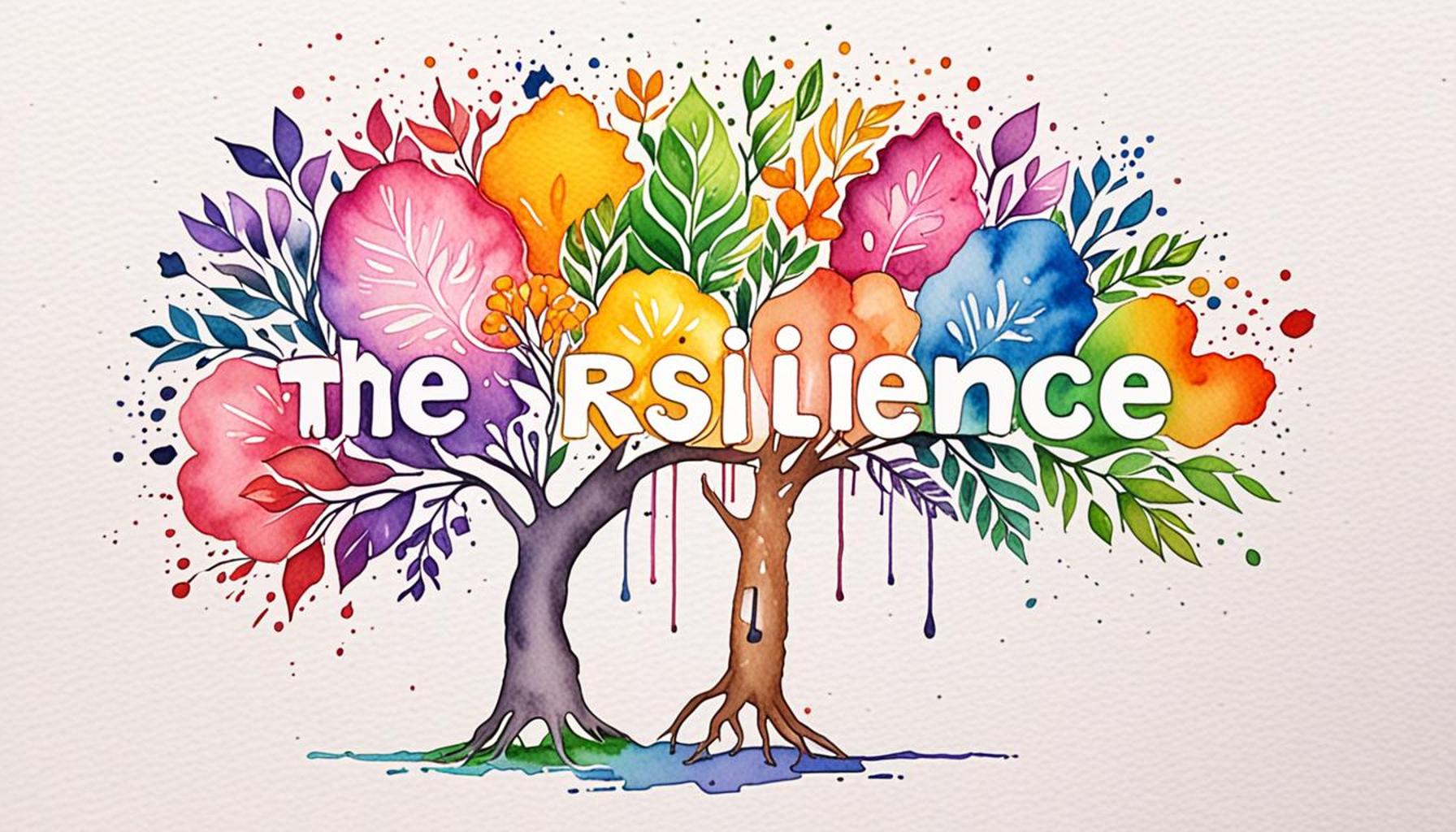Lessons from Failure in Successful Careers: What Leaders Learned

The Role of Failing Forward
Failure is often viewed as the uninvited guest on the path to success. However, many renowned leaders in Nigeria and around the globe have turned their past setbacks into stepping stones. The lessons gleaned from these experiences are invaluable. Rather than being an endpoint, failure can serve as a catalyst for growth and innovation.
Key Insights from Failed Endeavors
- Resilience: One of the most significant lessons failure imparts is the ability to bounce back stronger. For instance, many individuals recall the struggles faced by Aliko Dangote, who encountered numerous challenges—including failed ventures—early in his career before ultimately building a multi-billion naira empire. His resilience paved the way for the monumental success he enjoys today.
- Innovation: Failure often acts as a breeding ground for innovation. Challenges compel individuals to think outside the box and develop creative solutions. Nigerian tech startups, for instance, frequently pivot their business models in response to setbacks, leading to unique offerings in the market, like payment solutions that cater specifically to local needs.
- Self-Awareness: Failure also encourages individuals to take a hard look in the mirror. By analyzing what went wrong, entrepreneurs can better understand their strengths and weaknesses. Many Nigerian business leaders emphasize that critical self-assessment following failure has been key to their eventual success.
Consider the stories of successful Nigerian entrepreneurs like Aliko Dangote, whose journey illustrates a universal truth: every setback carries a lesson worth learning. According to the Nigerian Bureau of Statistics, the barriers faced by small and medium enterprises (SMEs) often stem from failures in planning or execution. Yet, it is those who learn from these failures that thrive in the competitive market.
Why Embrace Failure?
Learning from failure cultivates a growth mindset, which is essential for navigating today’s rapidly changing business landscape. Embracing disappointment not only fosters personal growth but also influences organizational success. In a country where the entrepreneurial spirit is robust, recognizing failure as a natural part of the journey can enrich the experience of budding entrepreneurs. For instance, many Nigerian innovators have turned moments of defeat into opportunities for mentorship, sharing insights to foster a supportive community.
This article delves deeper into the lessons learned from failure, showcasing how leaders transformed their missteps into strategies for future triumphs. Through exploration and reflection, we uncover the profound impact failure can have on careers. By examining case studies and narratives from various sectors, we can inspire more individuals to adopt a positive outlook toward failure, ultimately leading to greater innovation and success.
In summary, the path to success is rarely a straight line; it is often filled with twists and turns of failure. Recognizing the value in these experiences allows us to grow, innovate, and succeed beyond our wildest dreams.
ADDITIONAL INSIGHTS: Expand your understanding here
Transforming Setbacks into Opportunities
The journey of leadership is often characterized by a series of trials and tribulations. Many successful leaders in Nigeria have faced seemingly insurmountable obstacles that at the time felt like failures. However, these setbacks have provided fertile ground for profound lessons that have shaped their illustrious careers. Understanding how these leaders navigated their failures reveals critical pathways toward resilience and innovation.
Mapping the Terrain of Failure
In the realm of entrepreneurship, failure is not a foreign concept; it is a common occurrence. A study conducted by World Bank indicated that approximately 70% of new businesses in Nigeria fail within their first few years. However, a closer examination of these failures shows that many entrepreneurs have used these experiences not as endpoints, but rather as stepping stones. Here are some of the key insights that successful leaders have drawn from their encounters with failure:
- Learning Agility: Quick adaptation to change is essential in the business world, and failure often forces leaders to develop this skill. For instance, Nimi Akinkugbe, founder of Money Matters with Nimi, faced initial challenges in establishing her financial consultancy. Her ability to pivot her strategies based on market feedback led to her eventual success, transforming her early missteps into valuable lessons for her clients and herself.
- Networking and Support Systems: Failure teaches the importance of building a network of support. Leaders like Iyinoluwa Aboyeji, co-founder of Andela and Flutterwave, emphasize how surrounding oneself with mentors and peers can provide critical insights during tough times. The relationships nurtured through shared experiences of failure often lead to collaborative innovations.
- Courage to Innovate: Many leaders find that failure ignites a spirit of experimentation. When faced with setbacks, they feel encouraged to explore new business models and strategies. Nigerian fintech companies, like Paystack, faced initial skepticism before ultimately revolutionizing payment solutions in Nigeria, demonstrating how innovators can learn from prior challenges to foster significant advancements.
These critical lessons encapsulate the essence of failing forward—viewing failures as a necessary part of the development process rather than an unchangeable mark on one’s career. Researchers and thought leaders continually highlight that resilience, networking, and innovation should be deemed crucial for navigating the choppy waters of business.
The stories of leading figures in Nigeria, such as Tony Elumelu, remind us that setbacks are part of the entrepreneurial journey. Prior to his successful establishment of the Tony Elumelu Foundation, he also faced obstacles that seemed daunting. However, embracing the lessons embedded within these experiences equipped him with the knowledge and wisdom necessary to foster transformative initiatives across Africa.
As we explore further into the realms of failure’s impact on successful careers, it becomes evident that the landscape of leadership is dynamically shaped by a willingness to learn from mistakes. Through storytelling and assessment of real-life examples, we see how setbacks can serve as catalysts for future triumphs in the competitive Nigerian market.
| Category | Key Insights |
|---|---|
| Resilience | Successful leaders often cite resilience as a crucial trait learned through failure, enabling them to bounce back stronger. |
| Risk Management | Experiencing setbacks teaches leaders vital risk management strategies that help in making calculated decisions. |
| Self-awareness | Failure fosters a sense of self-awareness, pushing leaders to acknowledge their weaknesses and work on them. |
| Adaptability | Lessons from failure highlight the importance of being adaptable, encouraging leaders to pivot when faced with new challenges. |
The experience of failure can be daunting, yet it serves as a powerful teacher for leaders navigating their careers. Within the context of resilience, leaders learn to confront obstacles head-on, shaping their ability to recover swiftly from setbacks. This journey also fosters enhanced risk management skills, enabling them to better evaluate opportunities against potential downsides.Furthermore, a taste of failure cultivates self-awareness, pushing leaders to identify their limitations and actively seek improvement. The capacity for adaptability is another vital lesson, as those who learn to adjust their strategies in response to evolving circumstances are more likely to thrive in today’s unpredictable environments. By understanding these key lessons, the pursuit of success becomes not just a goal but a journey enriched with invaluable insights.
YOU MAY ALSO LIKE: Read read another article
Resilience: The Backbone of Leadership
As we delve deeper into the lessons of failure, one theme consistently emerges across the narratives of successful leaders: resilience. This characteristic not only separates those who give up from those who persevere, but it also lays the foundation upon which future successes are built. Resilient leaders often harness their turbulent experiences to refine their vision and approach. One notable example is Folorunsho Alakija, a prominent Nigerian businesswoman who transitioned from being a fashion designer to a billion-dollar oil magnate. Early in her career, Alakija experienced numerous setbacks, including facing intense competition and regulatory challenges. However, she utilized these hardships to strengthen her resolve, ultimately creating a diversified portfolio that includes oil, fashion, and philanthropy.
Embracing Vulnerability
Another significant lesson that successful leaders have gleaned from their setbacks is the power of vulnerability. Embracing vulnerability allows leaders to admit their mistakes and learn from them, fostering a culture of openness and collaboration within their teams. Leaders like Emeka Okwuosa, an accomplished entrepreneur in the Nigerian telecommunications sector, emphasize the importance of acknowledging failures without fear of judgment. Okwuosa’s journey involved overcoming significant obstacles, including navigating the complexities of a burgeoning industry. By openly discussing his missteps, he encouraged his team members to do the same, ultimately creating an environment where innovation thrived, resulting in breakthroughs that revolutionized their services.
Strategic Risk-Taking
The experienced leaders of Nigeria have also learned the importance of strategic risk-taking. In an environment rich with uncertainty, the willingness to take calculated risks becomes essential. Leaders like Ibukun Awosika, the first female chair of First Bank of Nigeria, faced failures in her early business ventures. However, she maintains that every risk taken is an opportunity for growth. Her commitment to continuous learning and experimenting enabled her to innovate and pivot when facing obstacles, transforming potential failures into valuable lessons that informed her next steps in business and leadership.
- Data-Driven Decisions: Modern leaders are also beginning to use analytics and data to assess failures. The availability of data-driven insights equips leaders with better tools for decision-making, allowing them to identify the root causes of setbacks. When businesses adopt data analytics, they can craft strategies that minimize previous errors, ultimately enhancing long-term sustainability.
- Building a Culture of Continuous Improvement: Successful leaders who learn from failure also recognize the importance of fostering a culture of improvement. This includes not only their own growth but also the development of their teams. Creating training programs or mentorship opportunities enables team members to learn from past missteps and prevent similar mistakes from occurring in the future.
The landscape of leadership in Nigeria continues to shift as more leaders reflect on their experiences with failure. By weaving resilience, vulnerability, and strategic risk-taking into their career frameworks, these individuals have forged paths to greater success. Each story of overcoming failure serves as a poignant reminder that setbacks, rather than fatal pitfalls, can serve as the very catalysts for growth and transformation. Those looking to glean insights from the careers of these steadfast leaders will find that the adjustments made in the wake of failure are not just lessons learned, but defining elements of their legacies in the Nigerian business milieu.
CHECK OUT: Click here to explore more
Conclusion: Transforming Setbacks into Success
In the intricate tapestry of leadership, the narrative of failure emerges not as a thread to be hidden away but rather as a vital stitch that binds the fabric of growth. The experiences shared by Nigeria’s most accomplished leaders illustrate the profound value of learning from setbacks. Resilience, vulnerability, and strategic risk-taking are not just key attributes but essential life lessons that pave the way for future achievements. Each story of overcoming adversity, from Folorunsho Alakija to Ibukun Awosika, highlights the importance of leveraging failures as stepping stones rather than stumbling blocks.
Moreover, as leaders embrace a culture of continuous improvement, they foster an environment where teams can thrive even amidst challenges. The integration of data-driven decision-making further reinforces the understanding that analysis and adaptability can significantly mitigate risks. These leaders exemplify how confronting and acknowledging failure leads to innovation and collaborative success in their respective fields.
As we reflect on these invaluable lessons from failure, it becomes evident that the path to leadership is rarely linear. Instead, it is often marked by detours that offer profound insights and opportunities for transformation. For current and aspiring leaders, the takeaway is clear: embracing failure is essential to achieving lasting success in their careers. The wisdom distilled from these experiences encourages us all to view setbacks as not just challenges to endure, but as impactful teachers shaping our futures in the dynamic landscape of Nigerian leadership.


